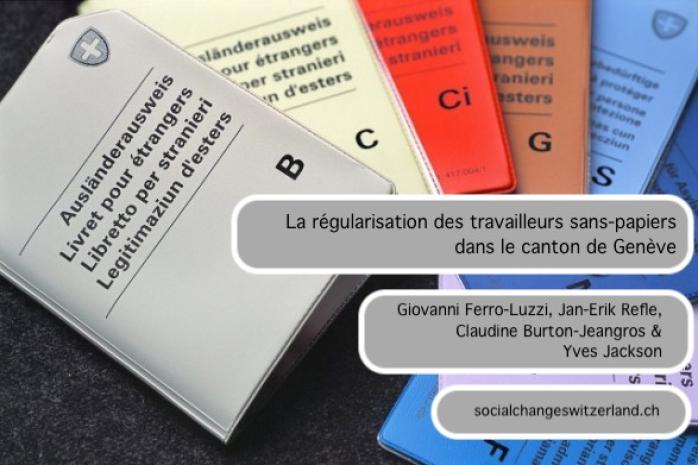
In the 36th issue of the Social Change in Switzerland series, Giovanni Ferro-Luzzi and his colleagues assess the regularization of undocumented immigrants in the canton of Geneva. Based on several surveys, they demonstrate that the employment opportunities for the 2900 individuals who were regularized have expanded, but their incomes remain low. One consequence of the regularization has been the compliance of numerous employers.
In 2017 and 2018, the canton of Geneva initiated Operation Papyrus and regularized approximately 2900 individuals who met the criteria of having employment, living in Geneva for a certain duration, understanding French, and having no criminal records. A team of researchers from the University of Geneva followed this cohort of former undocumented immigrants between 2017 and 2022 through annual surveys.
Their findings indicate that three-quarters of the regularized individuals are women, mainly from Latin America (especially Brazil and Bolivia) and the Philippines. Most work in domestic services, including household tasks as well as childcare and elderly care. While the majority of individuals retained the same jobs after regularization, it had a significant impact on the compliance of their employers. While only 41% of jobs were declared for individuals without legal status, the proportion rose to 85% for those who were regularized.
Regularized individuals see their opportunities expand in terms of employment and housing. However, their economic situation remains fragile, with median incomes ranging between 3000 (2017-18) and 3300 Swiss francs net (2021-22). The use of social assistance is, however, anecdotal, affecting less than 1% of respondents. Even during the pandemic, only 5% of regularized participants temporarily resorted to social assistance.
The authors conclude that regularization has provided more stable life prospects for individuals living in Switzerland for many years. It has also helped rectify employment relationships in sectors where undeclared work was prevalent. Thus, it put an end to a contradictory system that tolerated the presence of migrants without residency permits to address social and economic needs while accepting the persistence of abuses.
>> Ferro-Luzzi, Giovanni, Refle, Jan-Erik, Burton-Jeangros, C. & Jackson, Yves (2023). La régularisation des travailleurs sans-papiers dans le canton de Genève. Social Change in Switzerland, N°36, www.socialchangeswitzerland.ch
Contact
Prof. Giovanni Ferro-Luzzi, Université de Genève & HES-SO Genève, 022 379 89 01, Giovanni.Ferro-Luzzi@unige.ch
The series Social Change in Switzerland continuously documents the evolution of the social structure in Switzerland. It is published jointly by the Swiss Competence Centre for Social Sciences FORS and the LIVES Centre - The Swiss Competence Centre for Research on Life Courses and Vulnerabilities. The aim is to trace changes in employment, family, income, mobility, voting or gender in Switzerland. Based on state-of-the-art empirical research, it is aimed at a wider audience than just specialists.

